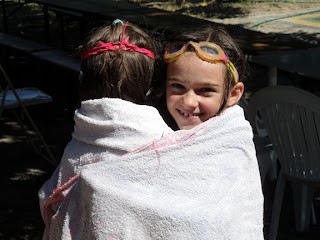A couple of weeks before we were to leave Hungary, I started listening to stories about the United States Congress toying with its debt ceiling. And once these stories began, they were the headline story every day. It seemed a group of U.S. representatives, elected to change politics as usual, had done just that, and were engaging in what appeared to be political theater by holding the United States credit rating hostage to its every demand. The news stories were increasingly nervous, calculating the risks and consequences of refusing to pay back what was already borrowed; but towards the end of every story, reporters reassured the audience that this really was political theater and the crisis would be solved in spite of the posturing, pointing to markets and investors whose calm proved a solution was expected.
But now we are only a few days away, and an agreement seems as far away as ever. Over the weeks, we have watched Obama and Democratic representatives and senators agree to concession after concession, gutting the safety net -- raising the eligibility age and premiums for Medicare, shrinking Medicaid, changing the formula for Social Security payouts, and other cuts to discretionary spending with greatest impact on the middle and working classes and vulnerable. He had requested in return closing corporate tax loopholes and ending tax breaks for the wealthiest Americans. Eventually, these requests were dropped too until every Democratic signature on the package was gone, everything conceded; but somehow there was still no deal.
We have returned to a United States in crisis. While this could be a difficult return for someone out of the country for a year, what makes this moment even worse is the absurdity of this crisis. Though failure could make borrowing and the therefore governance and infrastructure more expensive -- in perpetuity -- to name only a direct consequence, Congress just needs to say we agree to pay our bills, and that's it: crisis averted. This is not a Depression, or a war, or a hurricane. This is a tempest stirred up in a building out east. But every hour the crisis becomes more and more real.
We have returned to a United States where the government doesn't govern. It throws tantrums. And the safety and well-being of its citizens and resources, not to mention the most basic constitutional checks and balances, seem a distant thought.
But now we are only a few days away, and an agreement seems as far away as ever. Over the weeks, we have watched Obama and Democratic representatives and senators agree to concession after concession, gutting the safety net -- raising the eligibility age and premiums for Medicare, shrinking Medicaid, changing the formula for Social Security payouts, and other cuts to discretionary spending with greatest impact on the middle and working classes and vulnerable. He had requested in return closing corporate tax loopholes and ending tax breaks for the wealthiest Americans. Eventually, these requests were dropped too until every Democratic signature on the package was gone, everything conceded; but somehow there was still no deal.
We have returned to a United States in crisis. While this could be a difficult return for someone out of the country for a year, what makes this moment even worse is the absurdity of this crisis. Though failure could make borrowing and the therefore governance and infrastructure more expensive -- in perpetuity -- to name only a direct consequence, Congress just needs to say we agree to pay our bills, and that's it: crisis averted. This is not a Depression, or a war, or a hurricane. This is a tempest stirred up in a building out east. But every hour the crisis becomes more and more real.
We have returned to a United States where the government doesn't govern. It throws tantrums. And the safety and well-being of its citizens and resources, not to mention the most basic constitutional checks and balances, seem a distant thought.















